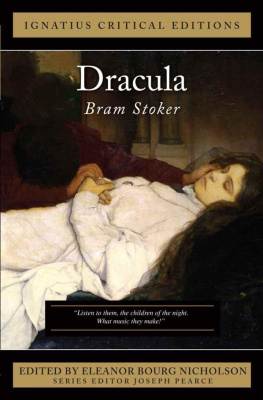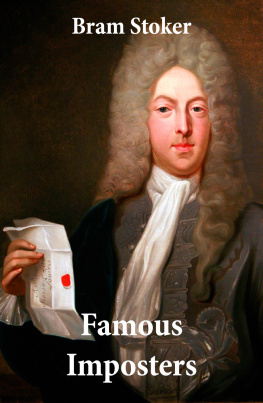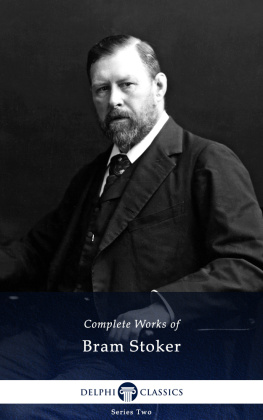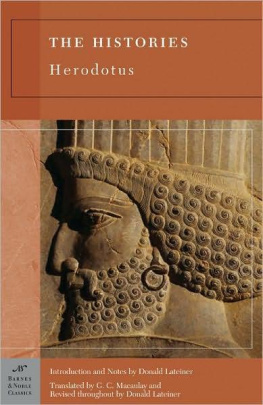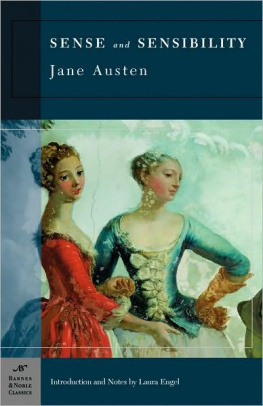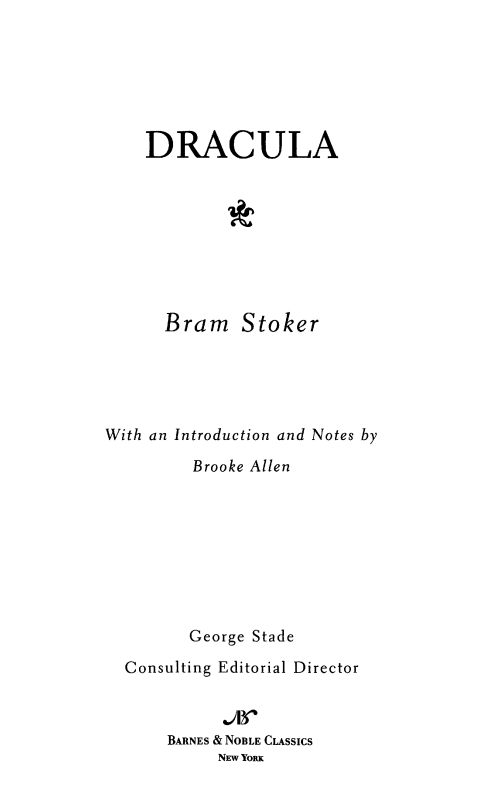
Table of Contents
FROM THE PAGES OF DRACULA
I read that every known superstition in the world is gathered into the horseshoe of the Carpathians, as if it were the centre of some sort of imaginative whirlpool; if so my stay may be very interesting. (Mem., I must ask the Count all about them.) (page 6)
When the Count saw my face, his eyes blazed with a sort of demoniac fury, and he suddenly made a grab at my throat. I drew away, and his hand touched the string of beads which held the crucifix. It made an instant change in him, for the fury passed so quickly that I could hardly believe that it was ever there. (page 31 )
But my very feelings changed to repulsion and terror when I saw the whole man slowly emerge from the window and begin to crawl down the castle wall over that dreadful abyss, face down, with his cloak spreading out around him like great wings. (page 39)
Then she paused, and I could hear the churning sound of her tongue as it licked her teeth and lips, and could feel the hot breath on my neck. Then the skin of my throat began to tingle as ones flesh does when the hand that is to tickle it approaches nearernearer. I could feel the soft, shivering touch of the lips on the supersensitive skin of my throat, and the hard dents of two sharp teeth, just touching and pausing there. I closed my eyes in a languorous ecstasy and waitedwaited with beating heart. (page 44)
Between me and the moonlight flitted a great bat, coming and going in great, whirling circles. (page 105)
No man knows till he experiences it, what it is to feel his own life-blood drawn away into the veins of the woman he loves. (page 141)
Faith: that which enables us to believe things which we know to be untrue. (page 208)
Madness were easy to bear compared with truth like this. (page 209)
A brave mans hand can speak for itself; it does not even need a womans love to hear its music. (page 254)
All was dark and silent, the black shadows thrown by the moonlight seeming full of a silent mystery of their own. Not a thing seemed to be stirring, but all to be grim and fixed as death or fate; so that a thin streak of white mist, that crept with almost imperceptible slowness across the grass towards the house, seemed to have a sentience and a vitality of its own. (page 275)
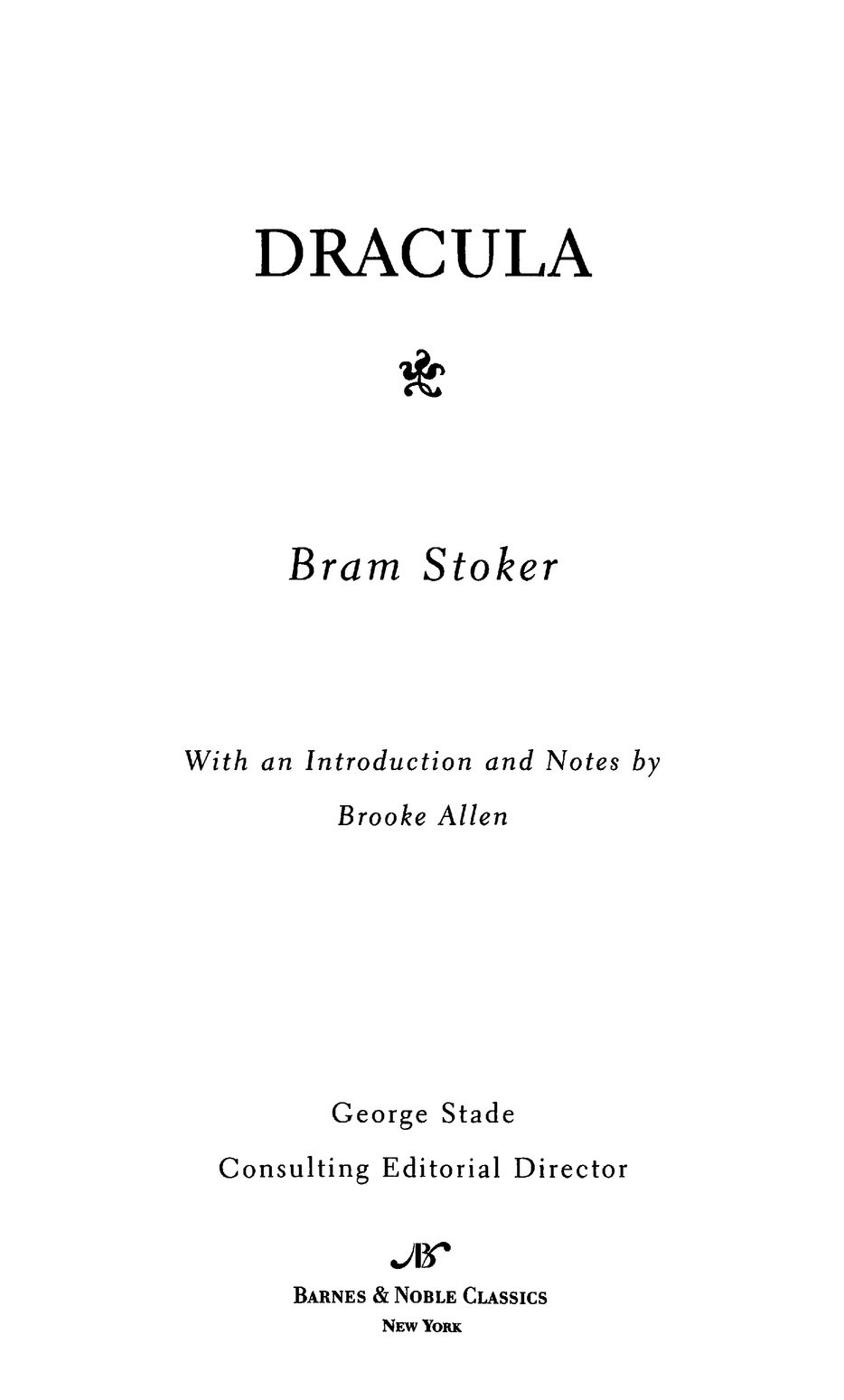
BRAM STOKER
Abraham Stoker was born in Dublin on November 8, 1847. An essayist, mathematician, civil servant, critic, theater manager, and writer of one of the modern worlds most absorbing tales, Stoker lived during an era of great cultural transformation. Famine and decadence, tradition and revolution, emancipation and nostalgiathese are a few of the opposing forces that abounded in Stokers world and that thrust Great Britain and Europe out of the old world and into modernity.
Son of a conservative, Protestant civil service clerk and the third of seven children, Bram Stoker was a fragile youth who suffered from a life-threatening illness; he could not walk unaided until the age of seven. His early sickness was replaced by vigorous health as he became a young man; he competed in athletics at Trinity College and excelled in mathematics and the sciences. After graduation, it appeared that Bram would follow in his fathers footsteps: He took a civil service post at Dublin Castle, where his father worked. His position made him privy to Dublins most exclusive salons ; Oscar Wilde and his parents were intimate friends, and Bram vied with Oscar for the hand of the future Mrs. Florence Balcombe Stoker. During his seven years of civil service, Stoker cultivated his nascent literary career. He published theater reviews, short stories, and a political address; he also began a correspondence with the American poet Walt Whitman that lasted until the poets death.
Although Stoker wrote his first, much-admired book The Duties of Clerks of Petty Sessions in Ireland (1879) on his civil-service profession and returned to Trinity to give talks on various topics, he ultimately chose to live a more artistic life in London. An 1876 reading of the poem The Dream of Eugene Aram by the actor Henry Irving profoundly affected Stoker; the two men became close friends, and Stoker worked as business manager for Irvings Lyceum Theatre from 1878 until the actors death in 1905. As in his earlier life, during these years Stoker was involved in an impressive range of endeavors.
He devoted a great amount of energy and time to Irving, fathered his only child, Irving Noel Thornley Stoker, and published frequently. He also lectured on the subject of the United States, studied law, and was given a Bronze Medal by the Royal Society for attempting to save a suicide.
Stoker put his indelible mark on the centuries-old vampire myth with the publication and stage debut of Dracula in 1897. The novel caused a sensationreactions were mixed and heated. Nevertheless, Draculas popularity has endured for more than a century. Stokers mother, Charlotte, perhaps praised Dracula most accurately when she said that no novel, apart from Mary Shelleys Frankenstein, is comparable in originality, or terror.
Stoker continued to publish widely, although his other works failed to attain the immortality of Dracula. While on tour with the Lyceum company in 1905, he witnessed the death of his longtime colleague and friend, Henry Irving. The next year Stoker suffered the first of two strokes. With his wife and son at his bedside, Bram Stoker died on April 20, 1912.
THE WORLD OF BRAM STOKER ANDDRACULA

| 1847 | Abraham Stoker is born on November 8 in Dublin to Charlotte and Abraham Stoker. Nursed by his uncle William through a lengthy childhood illness, Bram is repeatedly bled to improve his condition. Charlotte Bronts Jane Eyre and Emily Bronts Wuthering Heights are published. |
| 1848 | Revolutions take place in Paris, Vienna, Milan, Rome, and Venice. |
| 1849 | Brams brother Tom is born. Edgar Allan Poe dies. |
| 1854 | Brams brother George is born. Bram walks unaided for the first time. His illness ends and does not return for the rest of his relatively healthy life. Britain and France declare war on Russia. Tennysons The Charge of the Light Brigade is published. Oscar Wilde is born. |
| 1855 | Charlotte Bront dies. Walt Whitmans Leaves of Grass is published. |
| 1856 | Sigmund Freud is born. |
| 1859 | Stoker enters preparatory school, where he will study until 1863. Charles Darwins On the Origin of Species by Natural Selection and Charles Dickenss A Tale of Two Cities are published. Arthur Conan Doyle is born. |
| 1863 | Stoker enters Trinity College in Dublin, where he studies science and mathematics, and plays competitive sports. |
| 1865 | The American Civil War ends. Lewis Carrolls Alices Adventures in Wonderland is published. William Butler Yeats is born. |
| 1867 |


